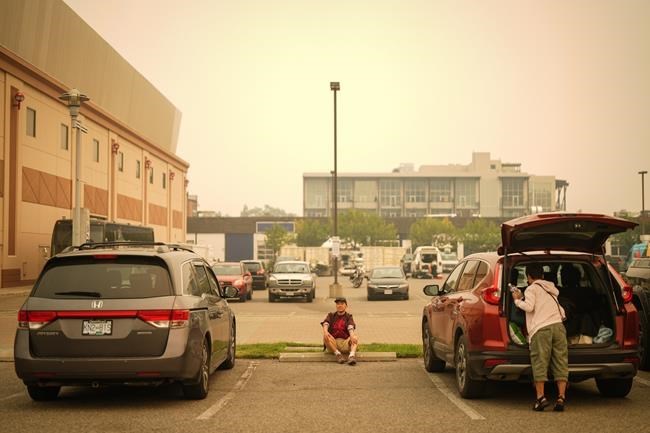The central Okanagan is facing weeks without tourism during its peak season after British Columbia's premier imposed bans on travel to wildfire zones.
Walt Judas, CEO of the Tourism Industry Association of BC, says the travel restrictions mean many tourism operators in the region are "taking a hit," though it's too early to quantify the damages.
"If you look at the entire 12 months of the year, August is typically the busiest month for visitors," he said.
The ban, which was introduced Saturday under the provincial state of emergency, will be in place until Sept. 4 for hotels, motels, inns, bed and breakfasts, hostels, RV parks and campgrounds in Kelowna, West Kelowna, Kamloops, Oliver, Osoyoos, Penticton and Vernon.
Premier David Eby has said the decision was made to ensure accommodation is available for crews and the 30,000 people who were forced from their homes across B.C.
Realtor Raymun Khunkhun, who has lived in Kelowna for about three decades, said the ban has left streets usually teeming with visitors eerily bare.
“There’s not a lot of people walking around," he said in an interview Saturday.
"It’s almost like a ghost town now out here."
Nearby wildfires have forced the evacuation of thousands in the city and watercraft rental businesses to close their doors, leaving boats and jet skis sitting idle, bobbing on the water.
The Kelowna International Airport has also been cancelling flights since Friday to ensure aerial firefighting efforts go uninterrupted.
Khunkhun said there’s not much that can be done now other than "pray for better days."
"These streets are usually packed, like it’s hard single-file walking when you’re on the sidewalks, and now it’s almost a little scary that it’s just empty," he said.
"Hopefully this doesn’t turn into anything worse than it already is."
Lisanne Ballantyne, CEO of Tourism Kelowna, said in a statement Sunday that the ban will impact the tourism sector, but the current focus remains on the wildfire response effort.
She encouraged people to listen to evacuation orders and avoid impeding firefighting efforts.
"When able, we will move forward to recovery planning," she said. "We have faced challenging situations before, and while none are the same, we will work through this together, rebuild and also focus on long-term resiliency."
Judas agreed, adding the ban comes at a time when businesses were already reeling from the COVID-19 pandemic, the devastating floods in 2021, and were finally expecting to bounce back.
"Many businesses are still not fully up to speed and operational after COVID. Many are still carrying a lot of debt and and don't have a full complement of staff," he said. "The industry is taking a big hit once again."
He added that projections showed the tourism industry's revenue was on track to be comparable with the 2019 season.
"To what degree this will affect overall tourism revenues is difficult to say," he said.
In the meantime, Judas said the focus should remain on protecting guests, residents, the community and businesses.
The province said the travel ban does not impact other regions, but is asking people to avoid non-essential travel to the central Interior and southeast to keep roads clear for emergency-response operations and other potential evacuations.
— With files from Darryl Greer in Kelowna.
This report by The Canadian Press was first published Aug. 20, 2023.
Brieanna Charlebois, The Canadian Press




